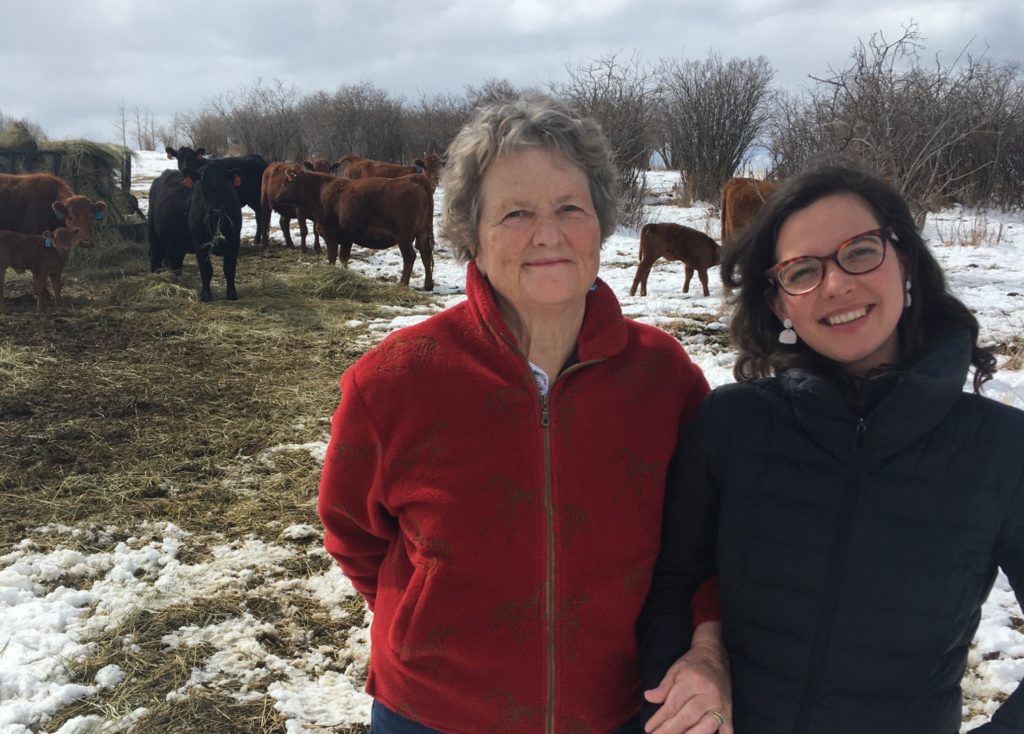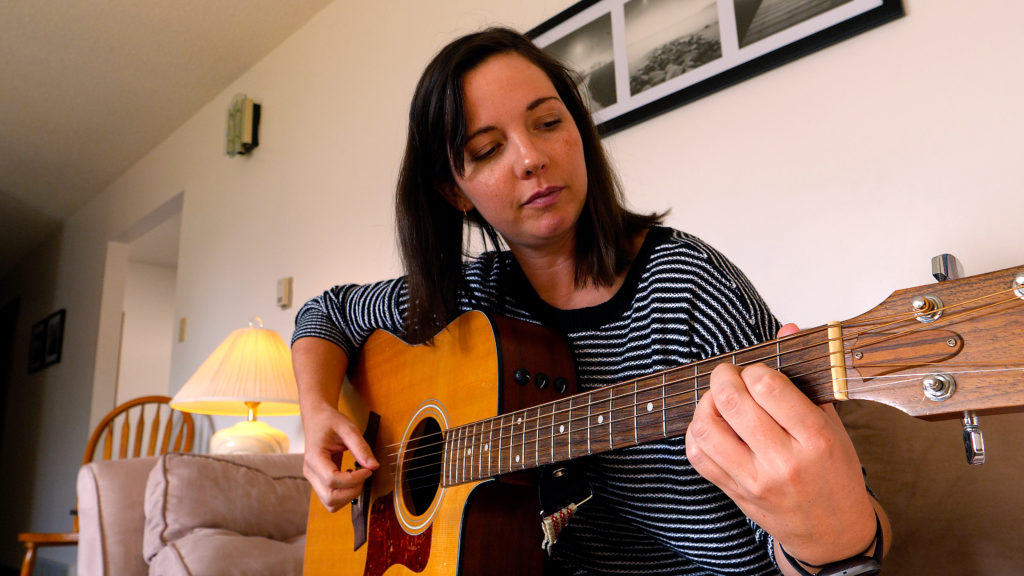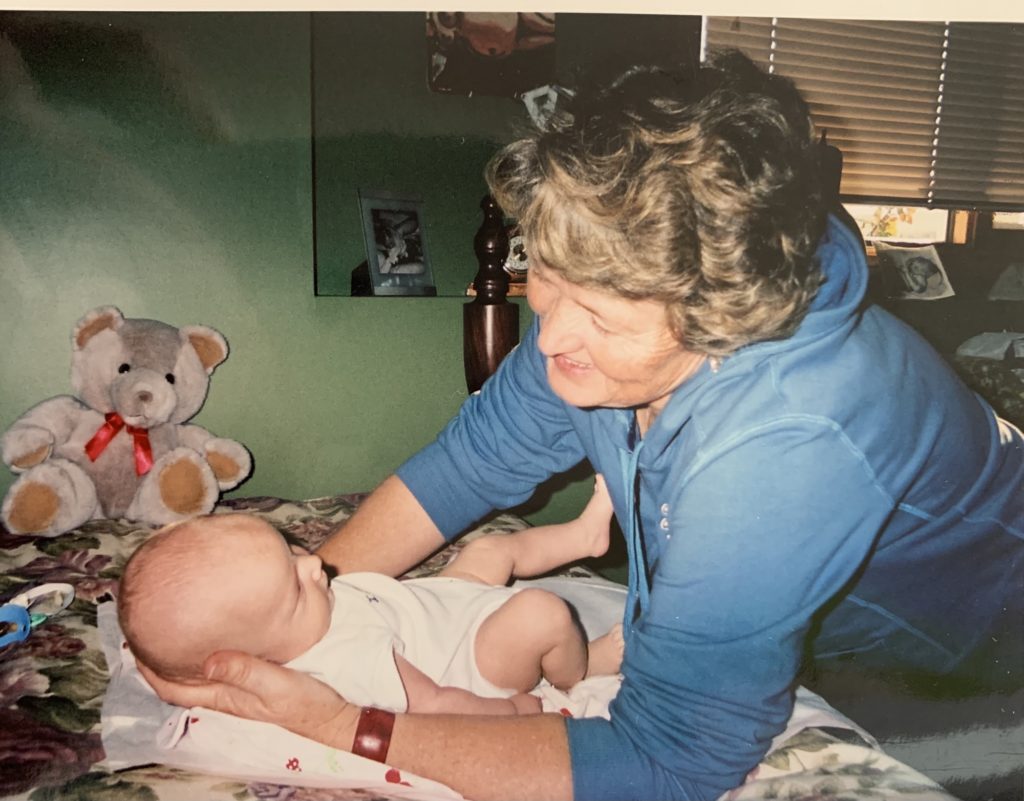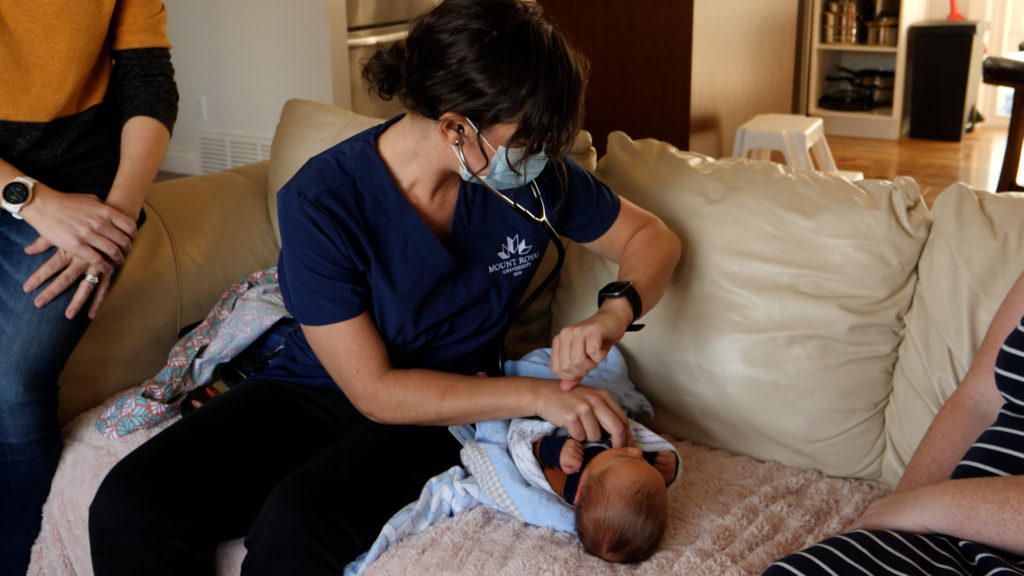As a nod to Mother’s Day celebrations this weekend, RhPAP is sending an early shout-out to all the wonderful health-care professionals across the province who are moms.
Not only are moms treasured members of the family, but many have also passed along their love for health care to their children and influenced their career choices.
Along with saluting moms today, we acknowledge International Day of the Midwife on May 5 with a profile on Emily West, a Bachelor of Midwifery student, who is following in her mother’s footsteps. International Day of the Midwife began 30 years ago as a way to recognize the work of midwives around the world.
Tomorrow, we will wrap up our Mother’s Day series when we tell the story of a mother and daughter who both have a love for medicine and travel.

Daughter follows mom down the midwifery path
It wasn’t uncommon to find Emily West sound asleep under the table as her mom and other midwives held strategy meetings in the early to mid’90s.
The midwifery profession was officially recognized in Alberta in 1981, but it took 17 years for midwifery to be registered and regulated, said Joy West-Eklund, Emily’s mother and a retired midwife who lives on a cattle ranch southwest of Cochrane. During this period, midwives and the public spent considerable time promoting the value of the profession and the choice it offered for families, she said.
Today, Joy is seeing the fruits of her labour (so to speak) play out as Emily begins her fourth year in the Bachelor of Midwifery Program at Calgary’s Mount Royal University this fall.
“I’ve seen such enormous changes over the past 20 years,” said Joy, who served as a district chief of midwifery for several years. “It’s just stunning. I mean, at the time, it felt like [registered midwifery] was never going to happen and was just never going to get there.
“But, bit by bit, piece by piece, it did. And now it’s so fantastic to think that I have a daughter in a … university [midwifery] program here in Alberta.”

Even though Emily was exposed to midwifery at a young age, she never expressed an interest in following her mom’s career path.
Joy knew her daughter was intrigued with women’s health care, but midwifery was not on her radar at all.
“I can’t even describe it; it was such a surprise,” said Joy of the day that Emily suddenly told her she had an interview with Mount Royal’s midwifery program.
Emily admits her choice to enter midwifery “wasn’t straightforward.”
“It took me a while to figure out that [midwifery] really was for me,” she explained. “I actually went and did a degree in women’s studies and gender studies on the east coast where I looked at health care from a social science perspective.”
After a taking a break for a few years to study music, Emily kept coming back to health care.
“I feel incredibly lucky to be able to call my mom when I’m hemming and hawing over something. It’s really been so gratifying to be able to share that with her and bounce things off her and understand her practice style. I wasn’t able to practise with her, but [now] I kind of understand how she managed cases.” – Emily West
“[I wanted] to get into that field in a way that felt genuine and that offered people choices.”
Looking back, Emily believes seeing firsthand how her mom cared for her clients and their families had an impact on her career choice.
What she didn’t realize at the time was that style of health care wasn’t the norm.
“I almost didn’t have an understanding of how different it was from how our wider health-care system practises sometimes.”
Joy had heard family stories about her great grandmother working as a midwife in rural Saskatchewan in the late 1800s and early 1900s, and yearned to offer more family-centred care choices for women during pregnancy, delivery, and postpartum.
“From early in the 20th Century until 1998, there really was only one official choice, and it was to go to the doctor and then go to the hospital,” she said. “That was it and that didn’t work for everyone.”

Joy began working as a registered nurse in labour and delivery in the 1970s, and, at the time, there were no Canadian midwifery education programs.
When Joy learned of a post-nursing program in Australia in 1979, the young nurse jumped at the opportunity to take it. Midwifery still wasn’t recognized when she returned to Alberta, so she worked again as an RN in labour and delivery for about 10 years at the Foothills Medical Centre in Calgary while she started her own family.
“I would have loved to have worked as a midwife, but there was really no place for it at the time,” said Joy. “Pretty much the only choice was to work as nurses in labour and delivery.”
The mother of three daughters and three step-children eventually moved to community midwifery care, and later opened her own practice.
Joy is relieved that, when Emily graduates, she’ll be eligible to practise right away, but acknowledges there are still hurdles to overcome.
“People don’t always understand what a midwife’s role is, what her education is, or that midwives can practise in all settings including hospitals and birthing centres,” said Joy.
“They think midwives only practise at home. There’s just lots of misunderstanding … but it’s getting so much better.”
Emily completed some on-the-job training in Taber during her third year and learned to embrace the idea of delivering care to people in their own homes.

She also enjoys discussing her experiences with her mom.
“I feel incredibly lucky to be able to call my mom when I’m hemming and hawing over something,” Emily added. “It’s really been so gratifying to be able to share that with her and bounce things off her and understand her practice style. I wasn’t able to practise with her, but [now] I kind of understand how she managed cases.
“There’s so much she really instills in me … that people can make decisions for themselves and should be able to make decisions for themselves, their pregnancies, and in their births.”
Joy retired from midwifery several years ago, but she is able to keep her affection for new life alive during calving season on the cattle ranch she operates with her husband.
Emily’s experiences also conjure up many fond memories for mom.
“I’m elated that she wants to pursue this life, because, for me, I can’t think of anything that would be more satisfying,” said Joy.
“I just loved it as a career.”
— Lorena Franchuk
Did you enjoy this article?
Subscribe to the Rural Health Beat to get an article about positive developments in rural health delivered to your inbox each week.
Oops! We could not locate your form.
